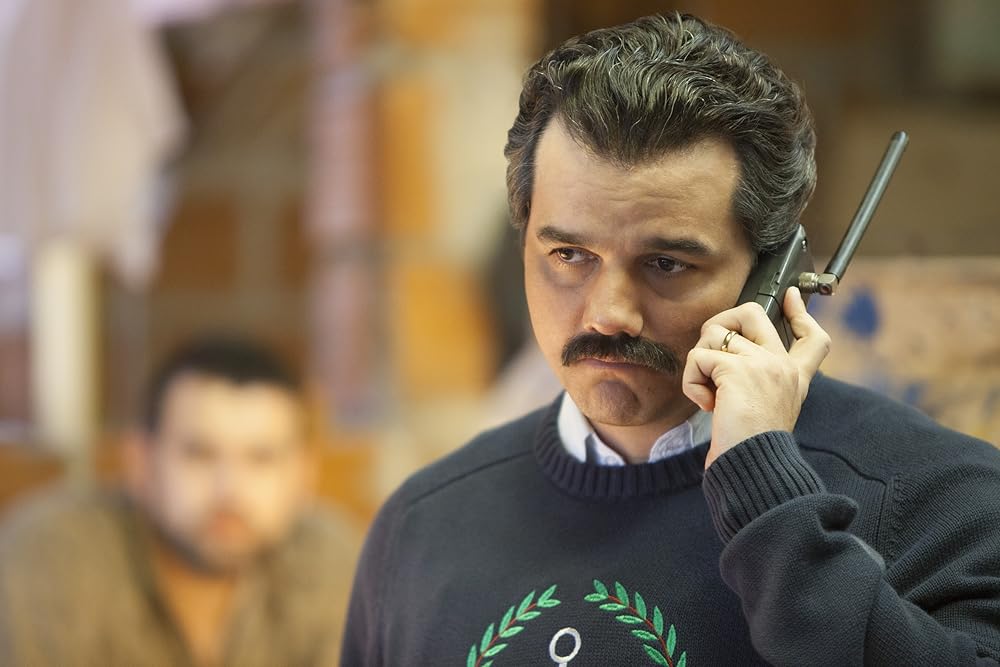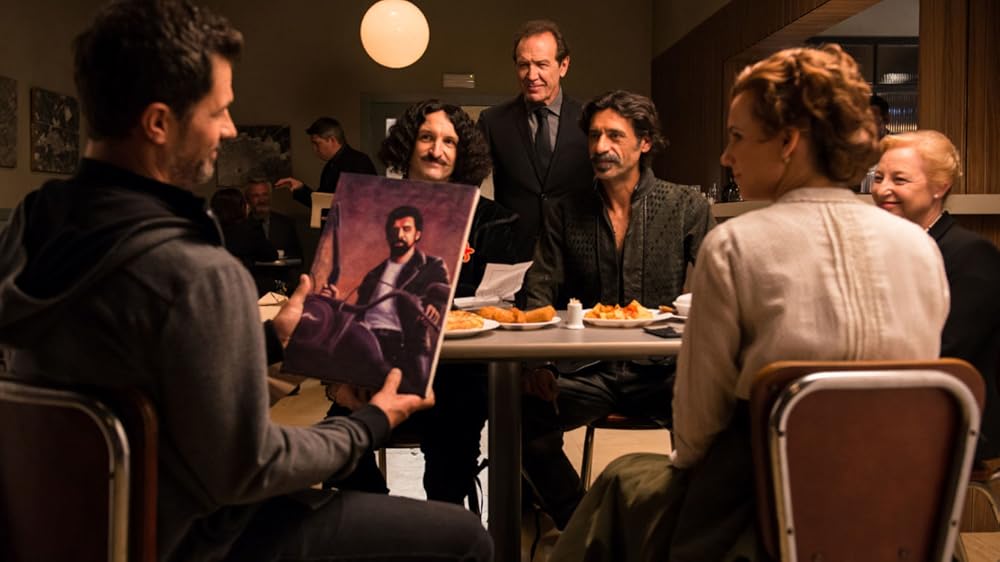11 Spanish-Language TV Shows That Took the World by Storm
In recent years, Spanish-language TV shows have taken the entertainment world by storm. These shows have not only captured the attention of Latin American audiences but have reached viewers across the globe. From intense crime dramas to heartwarming comedies, Spanish-language series offer a variety of genres that appeal to all kinds of tastes. As international audiences continue to embrace them, these shows have proven that language is no barrier to great storytelling.
This post may contain affiliate links, which helps keep this content free. Please read our disclosure for more info.
La Casa de Papel (Money Heist)

La Casa de Papel first aired in Spain in 2017 and quickly became a global sensation. The show follows a group of criminals, led by The Professor, as they plan and execute an elaborate heist at the Royal Mint of Spain. The main cast includes Úrsula Corberó as Tokyo and Álvaro Morte as The Professor. Its mix of intense action, emotional moments, and unexpected twists captured the attention of audiences worldwide. La Casa de Papel became especially popular in countries like Spain, Italy, and the United States, where it gained millions of viewers on Netflix.
The series stands out for its clever plot and compelling characters, making it more than just a typical heist drama. Fans praised the show for its intricate storytelling and its portrayal of social and political issues. The impact of La Casa de Papel is still felt, with the iconic red jumpsuit and Dali mask becoming symbols of rebellion. Its success led to multiple seasons, each one ramping up the tension and suspense. The show remains one of Netflix’s most-watched series worldwide.
Narcos

Narcos premiered in 2015 and tells the story of the rise and fall of the notorious drug lord Pablo Escobar. Set in Colombia, the series focuses on the Colombian drug trade and the efforts of law enforcement to take down Escobar and his empire. The lead role of Pablo Escobar was played by Wagner Moura, while the character of Steve Murphy, an American DEA agent, was portrayed by Boyd Holbrook. This gained widespread popularity for its thrilling narrative, gritty realism, and complex portrayal of crime and corruption. It quickly became a hit in the United States, Mexico, and several European countries.
The show highlights the violent and corrupt nature of the drug trade while also providing an in-depth look at Escobar’s personal life. Narcos was praised for its strong performances, especially by Moura, and its ability to mix historical facts with engaging storytelling. With multiple seasons focusing on different aspects of the Colombian drug war, the series has had a lasting impact on global TV audiences. It introduced many viewers to the complexity of the Latin American drug cartels. Its success spawned a spinoff series, Narcos Mexico, further expanding its influence.
Elite

Premiering in 2018, Elite is a Spanish teen drama that follows the lives of students at a prestigious private school. The show delves into their relationships, secrets, and the murder mystery that unfolds among them. The lead cast includes Itzan Escamilla as Samuel, Miguel Bernardeau as Guzmán, and Danna Paola as Lu. Elite quickly became popular not only in Spain but also internationally, thanks to its dramatic plots, diverse characters, and high-quality production. It found a massive following in countries like Mexico, Argentina, and the United States.
The series gained attention for addressing issues such as class division, sexuality, and social inequality. Its suspenseful storytelling and relatable characters made it appealing to a wide audience, particularly younger viewers. Fans were drawn to the shocking twists and complex relationships, which kept them hooked season after season. The show’s portrayal of intense high school dynamics, combined with murder and mystery, set it apart from other teen dramas. Elite continues to be a hit with new seasons that expand on its captivating storylines.
Vis a Vis (Locked Up)

Vis a Vis premiered in 2015 and is a Spanish prison drama that follows the life of Macarena Ferreiro, a woman who is sent to prison for a white-collar crime. In prison, she faces challenges from both the system and her fellow inmates, leading to personal growth and conflict. The show starred Maggie Civantos as Macarena and Najwa Nimri as the villainous Zulema. Vis a Vis received praise for its intense drama, strong performances, and gripping plot. It became popular in Spain and later found a significant audience in Latin America and the United States.
The show’s gritty and often dark portrayal of life in prison was a major draw for viewers. The combination of suspense, betrayal, and complex characters set Vis a Vis apart from other dramas. Fans were captivated by the emotional and psychological depth of its characters, especially Macarena’s transformation. Vis a Vis became known for its bold storylines and shocking plot twists, making it a must-watch for fans of crime dramas. It later spawned a spinoff series called Vis a Vis El Oasis.
La Casa de las Flores (The House of Flowers)

Aired in 2018, La Casa de las Flores is a Mexican dark comedy that explores the dysfunctional family dynamics of the De la Mora family. After the sudden death of the family’s patriarch, secrets and hidden truths come to light, leading to drama and comedy. The show stars Verónica Castro, Cecilia Suárez, and Aislinn Derbez. La Casa de las Flores became widely popular for its sharp humor, compelling characters, and exploration of themes like family, love, and identity. It was particularly well-received in Mexico and the United States, where it gained a significant following through Netflix.
The show is praised for its witty dialogue, colorful characters, and blend of comedy and drama. La Casa de las Flores tackles important issues such as LGBTQ+ rights, mental health, and societal expectations. It gained a loyal fanbase for its unique storytelling style, mixing emotional depth with comedic moments. The series also highlighted Mexican culture, with its iconic sets and use of music. Its success led to multiple seasons and a prequel film, solidifying its place as a landmark in Spanish-language TV.
Soy Luna

Soy Luna aired in 2016 as a Disney Channel Latin America production, aimed at younger audiences. The show follows the life of Luna Valente, a teenage girl who discovers her passion for roller skating while navigating high school, friendships, and family life. The lead role of Luna was played by Karol Sevilla, and the show also featured Ruggero Pasquarelli and Valentina Zenere. It quickly became a hit in Latin America and Spain, thanks to its positive messages and catchy songs. Soy Luna became especially popular among teenagers in countries like Argentina, Mexico, and Spain.
The show stands out for its focus on themes of self-discovery, teamwork, and personal growth. It also highlighted the importance of following one’s passion and overcoming challenges, making it relatable to many young viewers. Fans loved the vibrant music, fun roller-skating sequences, and strong friendships that formed among the characters. Soy Luna built a loyal fanbase thanks to its heartwarming storylines and relatable characters. The series was so successful that it led to a live tour and a soundtrack album.
El Ministerio del Tiempo (The Ministry of Time)

El Ministerio del Tiempo, which premiered in 2015, is a Spanish science fiction series about a secret government agency that protects the country’s history by preventing time travelers from altering the past. The show blends historical events with futuristic concepts, offering a unique mix of genres. The main cast includes Rodolfo Sancho as Julián, a modern-day agent, and Aura Garrido as Amelia, a medieval Spanish noblewoman. El Ministerio del Tiempo gained popularity for its clever narrative, interesting historical references, and engaging characters. It was particularly well-received in Spain but also found a growing international audience.
The series’ creative take on time travel, combined with Spain’s rich history, made it stand out among other sci-fi shows. El Ministerio del Tiempo was praised for its blend of humor, drama, and suspense. Its intelligent approach to time travel sparked discussions about the importance of history and memory. Fans appreciated the show’s ability to entertain while educating viewers on historical events, from the Spanish Civil War to the reign of King Philip II. The show became a cult favorite and earned a dedicated fanbase that continues to support it.
La Reina del Sur (The Queen of the South)

La Reina del Sur premiered in 2011 and tells the story of Teresa Mendoza, a woman who rises from poverty to become one of the most powerful drug traffickers in the world. Based on the novel by Arturo Pérez-Reverte, the show stars Kate del Castillo as Teresa. It became one of the most-watched Spanish-language series in the United States, particularly among Latino audiences. La Reina del Sur captivated viewers with its powerful female lead, intense action, and complex storylines. The show gained popularity not only in Latin America but also in Spain and the U.S.
The show’s portrayal of Teresa’s transformation from a naive woman into a powerful figure in the criminal underworld resonated with many viewers. It tackled themes of survival, loyalty, and betrayal while showcasing strong female empowerment. Fans praised the performance of Kate del Castillo and the dramatic intensity of the plot. La Reina del Sur became a cultural phenomenon, leading to a second season and a spinoff series. Its impact on the global TV landscape remains significant, with audiences eagerly awaiting more stories of Teresa Mendoza.
El Chapo

El Chapo aired in 2017 and follows the life of Joaquín El Chapo Guzman, one of the most notorious drug lords in history. The show chronicles his rise to power, his criminal empire, and his eventual capture. The lead role of El Chapo was played by Marco de la O, and the show also features an ensemble cast including Alejandro Edda. El Chapo became widely popular due to its portrayal of the dangerous world of drug cartels and its depiction of the notorious figure. The show was particularly popular in Latin America and the United States, where it found a large following on streaming platforms.
The series delves into the complex life of El Chapo, focusing on his criminal activities and the challenges he faced throughout his life. El Chapo is praised for its intense, gritty storytelling and its depiction of the harsh realities of the drug trade. Fans of crime dramas were drawn to the show’s suspenseful plot and detailed character development. The show also highlights the political and social implications of drug trafficking in Mexico and beyond. Its success led to multiple seasons, each providing a deeper look into the life of one of the world’s most infamous criminals.
Falsa Identidad (False Identity)

Premiering in 2018, Falsa Identidad is a Mexican telenovela that tells the story of two people on the run from dangerous criminals. The lead characters, played by Camila Sodi and Luis Ernesto Franco, are forced to assume fake identities in order to survive. The show became popular for its thrilling plot, filled with action, romance, and suspense. It was widely watched in Mexico, the United States, and several Latin American countries. Falsa Identidad captivated viewers with its fast-paced storytelling and unpredictable twists.
The series delves into themes of survival, deception, and the lengths people will go to in order to protect themselves. Falsa Identidad was praised for its strong performances, particularly from its lead cast. The show also received attention for its portrayal of the criminal underworld and its tension-filled plot. Viewers were hooked by the constant twists and turns, making it a must-watch for fans of suspenseful dramas. The series continues to be popular, with a second season that further explores the characters’ journeys.
La Usurpadora (The Usurper)

La Usurpadora first aired in 1998 and became a staple of Mexican telenovelas. The show follows the story of two women, one who switches lives with her identical twin sister in order to take her place. The lead roles of Paola and Paulina were portrayed by Gabriela Spanic, and the series quickly gained a following in Latin America and beyond. La Usurpadora became especially popular in countries like Mexico, Colombia, and Venezuela. Its compelling plot and dramatic moments kept viewers hooked throughout its run.
The show’s main attraction was its complex portrayal of two sisters switching places and the ensuing chaos. La Usurpadora explored themes of deception, identity, and revenge, making it a classic in the telenovela genre. Fans loved the twists and turns of the plot, which often left them guessing what would happen next. The series is considered one of the most iconic telenovelas in history, continuing to have a lasting impact on Spanish-language television. It has inspired remakes and references in pop culture, cementing its place in TV history.
With compelling narratives and unforgettable characters, these shows have found a home in households around the world. Streaming services have played a significant role in bringing them to international audiences.
This article originally appeared on Avocadu.
